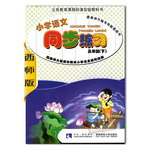题目内容
The USA has a quarter of the leading 200 in the latest ranking of the world universities, _________ 30 of the universities are in the UK.
A.when B.while C.where D.why
练习册系列答案
 同步练习河南大学出版社系列答案
同步练习河南大学出版社系列答案 同步练习西南师范大学出版社系列答案
同步练习西南师范大学出版社系列答案
相关题目
题目内容
The USA has a quarter of the leading 200 in the latest ranking of the world universities, _________ 30 of the universities are in the UK.
A.when B.while C.where D.why
 同步练习河南大学出版社系列答案
同步练习河南大学出版社系列答案 同步练习西南师范大学出版社系列答案
同步练习西南师范大学出版社系列答案